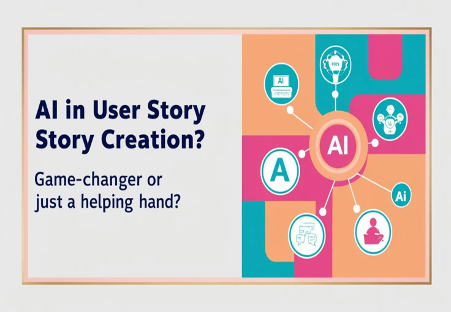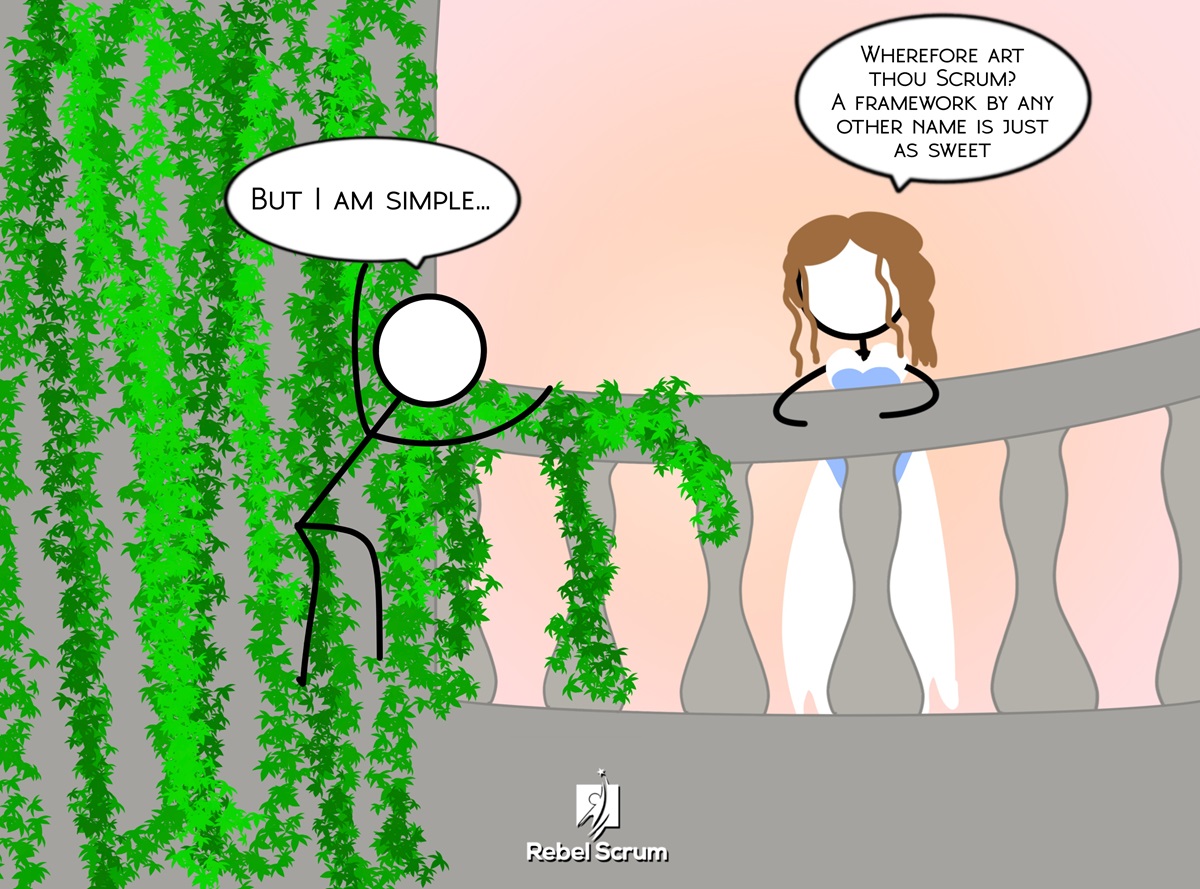Agile Methodology News
Scrum-Master-Toolbox
252

Substack Week: Engineering Strategy, Bridging Technical Excellence with Business Success With Aleix Morgadas
- Engineering strategy consultant Aleix Morgadas discusses the intersection of engineering strategy and business success.
- Morgadas emphasizes the importance of understanding the organizational context and identifying shared challenges in the development of engineering strategy.
- He advocates for a bottom-up approach to strategy development, bringing together perspectives from all levels of the organization.
- Success in engineering strategy requires thoughtful execution and ongoing adaptation, starting with minimal effort initiatives to gain momentum.
Read Full Article
15 Likes
Medium
207

Image Credit: Medium
Devs vs. PMs: Understanding Each Other (Without Losing Your Mind)
- The gap between developers and product managers is a common challenge in meetings where technical and business perspectives clash.
- Understanding technical decisions from a product perspective and vice versa is important for effective collaboration.
- Feature flags, canary releases, and blue-green deployments explained in a way that makes sense for product managers.
- Opportunity for Agile speakers to apply for the Online Scrum Master Summit, happening on June 17–19, 2025.
Read Full Article
12 Likes
Medium
435

Image Credit: Medium
AI in User Story Creation: Game-Changer or Just a Helping Hand?
- AI tools like ChatGPT offer solutions to challenges in user story creation by generating, refining, and prioritizing user stories through natural language processing and machine learning.
- AI can quickly generate user stories based on input, ensuring consistency, clarity, and grounding them in real user insights.
- By boosting team collaboration and helping prioritize tasks, AI enhances efficiency in user story creation.
- Possible pitfalls include AI's lack of context awareness, over-reliance on automation, and potential data privacy concerns.
- Teams have found AI valuable for streamlining tasks but noted the need for human input to ensure depth and clarity in user stories.
- Best practices involve starting with AI drafts, collaborating to refine stories, providing clear inputs, and balancing AI with human expertise.
- Future possibilities for AI in user story creation include seamless integration with Agile tools, real-time feedback, and advanced user behavior analysis.
- While AI enhances user story creation, human insight and collaboration remain essential for crafting meaningful and impactful stories.
- As AI technology evolves, the future of user story creation looks to be quicker, smarter, and more effective with the assistance of AI tools like ChatGPT.
Read Full Article
26 Likes
Medium
137

Image Credit: Medium
The Biggest Challenges in Project Management (and How to Overcome Them)
- Scope creep is a common challenge in project management, where the project's scope grows beyond its original boundaries.
- Tight and unrealistic deadlines put pressure on project managers, leading to lower-quality work and missed milestones.
- Communication breakdowns among teams can quickly lead to project failures and delays.
- Resource allocation is often a complex puzzle, with overworked employees and bottlenecks as a result.
Read Full Article
8 Likes
Discover more
- Programming News
- Software News
- Web Design
- Devops News
- Open Source News
- Databases
- Cloud News
- Product Management News
- Operating Systems News
- Computer Engineering
- Startup News
- Cryptocurrency News
- Technology News
- Blockchain News
- Data Science News
- AR News
- Apple News
- Cyber Security News
- Leadership News
- Gaming News
- Automobiles News
Scrum-Master-Toolbox
353

Substack Week: Bridging the Gap Between Agile Teams and Leadership With Josh Anderson
- Agile teams and organizational leadership face critical challenges and opportunities in their relationship.
- The perceived divide between 'the business' and development teams needs to be addressed, focusing on delivering real value to customers.
- Effective communication requires common language, clarification, and a focus on business value.
- Learning from anti-mentors and treating leadership development like product development can foster continuous improvement.
Read Full Article
21 Likes
Javacodegeeks
215

Image Credit: Javacodegeeks
Agile and DevOps Integration: Maximizing Efficiency in Software Development
- Agile and DevOps integration maximizes efficiency in software development by combining iterative development, customer collaboration, automation, and continuous delivery.
- Key principles of Agile include iterative development, customer collaboration, adaptability, and continuous improvement, with popular frameworks like Scrum, Kanban, and Extreme Programming.
- DevOps bridges the gap between development and operations teams through automation, collaboration, continuous delivery, and monitoring, utilizing tools like Jenkins, Docker, Kubernetes, Prometheus, and Grafana.
- Agile focuses on delivering customer value quickly, while DevOps emphasizes reliable and fast releases, with differences in team structure, tools, timeframe, and scope.
- Combining Agile and DevOps accelerates time-to-market, enhances collaboration, ensures high software quality, offers flexibility, and optimizes end-to-end efficiency.
- Integrating Agile and DevOps involves aligning teams and goals, integrating CI/CD pipelines, automating testing, monitoring and iterating, and adopting Agile practices in operations.
- Best practices for combining Agile and DevOps include starting small, focusing on culture, investing in tools, measuring success, and continuously iterating and improving processes.
- The synergy between Agile and DevOps leads to faster delivery cycles, improved collaboration, and higher customer satisfaction, requiring a cultural shift, tool investment, and commitment to continuous improvement.
- Organizations can achieve a seamless workflow, maximize efficiency, improve collaboration, and deliver high-quality software at scale through the integration of Agile and DevOps, staying competitive in the software development landscape.
- The integration of Agile and DevOps offers benefits like faster delivery, greater flexibility, and enhanced customer satisfaction, making it a worthwhile investment for startups and enterprises.
Read Full Article
12 Likes
Scrum
87

Image Credit: Scrum
Accountability vs. Responsibility: Are You Owning It or Just Doing It?
- The terms accountability and responsibility are often interpreted differently, leading to confusion.
- Accountability cannot be delegated, while responsibility can.
- An example with taxes illustrates the difference in practice.
- Understanding the distinction is crucial for leadership and organizational success.
Read Full Article
5 Likes
Dev
394

Image Credit: Dev
Nothing more permanent than a temporary solution!
- Technical debt is introduced when quick fixes or temporary solutions are implemented to meet immediate deadlines or solve urgent problems.
- These temporary solutions accumulate over time, degrading the code quality and complicating future development efforts.
- Recognizing and managing technical debt early is crucial to prevent it from becoming an overwhelming burden on the development process.
- The contents of this article are for informational purposes only, and the owner of the blog does not guarantee the accuracy or completeness of the information.
Read Full Article
23 Likes
Medium
284

Beyond Agile: The Dual-Track Framework for Product Excellence
- Dual-Track Agile provides a structured approach to integrate discovery and delivery in product development.
- It consists of two parallel tracks: Discovery Track and Delivery Track.
- Discovery Track focuses on finding and validating problems, while Delivery Track focuses on execution.
- By maintaining a continuous flow between discovery and delivery, waste is reduced and value delivery is accelerated.
Read Full Article
17 Likes
Dev
358

Image Credit: Dev
What is DevOps and How Does It Work?
- DevOps is a methodology where development and operations teams collaborate throughout the entire software lifecycle.
- The key objectives of DevOps are faster delivery, continuous deployment, and collaboration between Dev and Ops teams.
- The three key elements of successful DevOps implementation are a cultural shift, modern application design, and automation.
- DevOps is not just about Dev and Ops working together, creating a new team, or a set of tools; it requires a cultural transformation and a data-driven approach for success.
Read Full Article
7 Likes
Scrum
394

Image Credit: Scrum
Scrum by any other name
- In some organizations, Scrum is used with a different name due to bad past experiences with it.
- Excessive rules, layers, and additional practices added in the name of Scrum have caused frustration.
- Scrum is essentially simple with 5 events, 3 accountabilities, 3 artifacts, and a mindset of inspecting, adapting, and focusing on value.
- To improve the adoption of Scrum, organizations should stop unnecessary processes and documentation, call it Scrum, and access better training and resources.
Read Full Article
23 Likes
Alvinashcraft
128

Image Credit: Alvinashcraft
Dew Drop – February 17, 2025 (#4363)
- In the tech world, articles on various topics like adding a context menu to .NET MAUI ListView, the impact of gamification in learning, and enabling .NET Aspire for existing solutions were popular.
- Web and cloud development discussions focused on advanced React forms, Azure Functions cost considerations, Angular basics, and Deno's JavaScript registry project.
- Articles in the Visual Studio & .NET category covered topics like the .NET Developer Roadmap 2025, IEnumerable vs IEnumerator in C#, and the power of Dapper in .NET Core.
- AI-related articles discussed rebuilding a podcast website quickly, advancements in AI models, intelligent automation with AI agents, and Microsoft Copilot Academy's extensibility features.
- Design, methodology & testing articles delved into Terraform 101 for infrastructure as code, innovation theory, building Windows driver projects, and the defense of having multiple works in progress.
- Mobile, IoT & game development covered projects like a Raspberry Pi-based home security system, gRPC Swift 2, and the TrustedTime API for reliable timekeeping in apps.
- Podcast highlights included discussions on self-taught coding journeys, software failures and recovery, and the evolution of Blazor over seven years.
- Community and events news featured Microsoft Build and Google I/O dates, Redgate Summit's return to London, and Instagram testing a feature to downrank comments.
- In the database realm, topics like aggregates in SQL Server, disk space reclamation in RavenDB 7.1, and cursor pagination were explored.
- Miscellaneous articles covered writing a GIMP 3.0 plugin, toxic brake pad dust, and updates on Windows 11 Insider Preview Builds.
- The Geek Shelf recommendation was for the book 'Learn WinUI 3, Second Edition' by Alvin Ashcraft.
Read Full Article
7 Likes
Scrum-Master-Toolbox
353

Substack Week: Why Product Management is Broken and How to Fix It With Anton Zaides
- Anton Zaides, a seasoned software engineer and leader, discusses the broken state of product management in the tech industry.
- Key challenges include developing unused features, increasing software complexity, and misaligned incentives.
- Product managers often become more like program managers, focusing on internal processes rather than customer engagement.
- Anton advocates for changes like offloading program management, trusting product managers, and involving engineers in customer interactions.
- He emphasizes the importance of direct communication between technical teams and customers to improve product development.
- Practical implementation tips include involving engineers in customer conversations and giving them visibility through release messaging.
- Recommended resources for further study include articles by Anton Zaides and John Cutle, as well as a book recommendation by Marty Cagan.
- Anton Zaides has 15 years of experience in software engineering, from game development to leading DevOps and scaling startups.
- He started sharing insights for engineering managers in 2023 and writes a newsletter called 'Leading Developers.'
- Anton Zaides advocates for improving product management by bringing engineers and product managers closer, enhancing customer interactions, and treating product managers as business owners.
Read Full Article
21 Likes
Medium
59

Image Credit: Medium
Week 6 of Product Management Foundations for Designers
- Agile methodologies empower designers to collaborate better, iterate faster, and deliver impactful designs efficiently.
- Designers should prioritize collaboration, real user feedback, and adaptability to changes in Agile workflows.
- The Scrum framework involves the Product Owner, Scrum Master, and Development Team, each with specific roles and responsibilities.
- Designers play a crucial role in sharing designs, updating progress, gathering feedback, and suggesting improvements for collaboration.
Read Full Article
3 Likes
Medium
148

Image Credit: Medium
AI and creative teams form a powerful partnership for delivering value
- AI can make tasks easier, faster, and cheaper, but it can't truly be creative.
- Human beings have the power of true innovation.
- AI in 2025 can produce music that echoes existing themes, but it can't generate entirely new paradigms.
- AI can be a tremendous help for humans in product management, but it can't create products that shift away from what is currently known.
Read Full Article
8 Likes
For uninterrupted reading, download the app